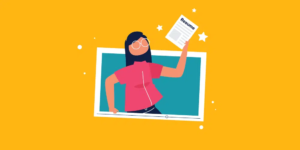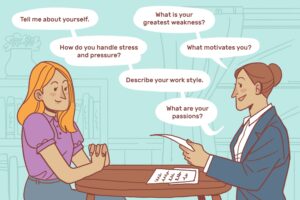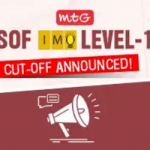
Campus placements can be a stressful experience for students. Thousands of graduates apply for placements after graduation each year since companies hire young and fresh talent right out of college. This is why, when it comes to campus placements, all college students want to give it their all. Given how competitive the world has become, only those who begin their preparation early will be able to complete all the competitive rounds and be placed in a reputable organisation. This blog is for students who are preparing for campus placements. This blog is packed of placement preparation ideas and tricks to help you land your first job.
- Create a crisp resume to apply with
Because your resume is your ticket to being shortlisted for a job interview, it must be crafted to stand out. A resume is a document that lists a candidate’s academic qualifications, achievements, extracurricular activities, internships, and volunteer work. Thus, the first step in campus placements is to create a powerful and concise resume that shows all of your accomplishments, both academic and extracurricular. It is our best chance of making a positive first impression on the employer and being invited to an interview.

Check out: How to Get an Internship of Your Choice During College!
- Know about the company you’re applying for
It is vital that you thoroughly research the company before preparing for an interview. This will assist you in better preparing for the interview and will also allow you to determine if the organisation is a good fit for you. Apart from that, you should make sure to check the company reviews by employees on various websites like Ambitionbox, Glassdoor, etc.
- Prepare for the interview process with different questions
If it’s your first time then you might find the interview process and questions very nerve-wracking. But it’s nothing that you can’t answer. The best technique is to prepare for the most asked questions in the interviews and practice your answers with confidence. You can start practicing some of the questions mentioned below –
- Tell me about yourself?
- What are your weaknesses and strengths?
- How well do you adapt to changes?
- Are you a team player?
- Can you work under minimum supervision?
- Why do you want to work for our company?
- How do you perform under pressure?
- What qualities of yours can benefit our company?

- Practice with Interview drills
When it comes to speaking in front of the employer, reading is not enough for practice. You must try mock interviews to bring confidence that you can tackle all those questions. There are plenty of free websites online that can help you with the practice for your interview such as Prepbunk, Pramp, etc. However, if you don’t want to try the online options, you can ask your friends or anyone to take your interview so you can evaluate your performance. Ask for their feedback because it can help you a great deal.
Also Check: Critical Thinking and Its Benefits in Real Life Scenarios
- Prepare for all the rounds
There are some differences in campus placements and regular job interviews. In a campus placement interview, the interviewer tends to check your personality for different grounds. Many start the interview with a group discussion of 8-10 candidates to check and find leadership quality level of each. The panel interview with 2-4 interviewers is to judge how well you behave under pressure. Personal interview with one person is to know your skills and your personality. The final is HR round, where they check for red flags and your ethics to know if you are a good fit for the company. Thus, mentally prepare yourself for all rounds and understand what you should know to stand out in all the rounds.
The most important things you must remember are to be positive, yourself, and confident. You must dress accordingly to look minimalistic, formal, yet comfortable. Don’t forget to work on your communication skills because talking with confidence goes a long way to make that first impression. Last but not the least, keep all your documents organised in a folder that are required during the interview. Documents such as your CV/Resume, college certificates, marksheets, personal IDs. It will show how organized you are and would save you the trouble of finding them in front of the interviewer.
All the best.






























